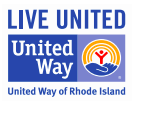Coyote RI, we extendS our deepest gratitude to our invaluable funders and grant-making partners. Your steadfast commitment empowers us to champion the rights and well-being of sex workers, and provide essential support to trafficking survivors and formerly incarcerated women., Through your generous contributions, we are able to sustain our vital direct services, lead impactful policy work that advocates for crucial systemic change, and share critical knowledge through our published works and community outreach. Your partnership is fundamental to fostering a more just, understanding, and supportive environment, enabling us to make a profound and lasting difference in the lives of those we serve. Thank you for believing in our mission and for being integral to our collective impact.
Amenity Aid who provides us with hygiene items to keep the COYOTE CLOSET up and running. (2022-2024)
RI DOH and URI for providing us with harm-reduction supplies (condoms and naloxone kits) (2018-2025)
Haymarket Peoples Fund (2020-2024)
Urgent Action Fund For Women’s Human Rights 2021
United Way RI Community Investment Grant Award 2021- 2022
United Way RI Community Impact Advocacy Track Grant (2023- 2025)
RI Foundation, CARES ACT Funding 2020- 2021-
RI Foundation Basic needs grant 2021- 2024.
RI Foundation Responsive Grant 2025
Donations from Members of Project Hill Foundation 2019
Resist funding (2017- 2022) & (2023-2025)
AMOR Funding (2017- 2019)
ASA Award 2016- Elena Shih, Brown University, and Bella Robinson, Executive Director, with COYOTE Rhode Island.
The project, “Policing Modern Day Slavery: Sex Work and the Carceral State in Rhode Island,” will examine the efficacy of legal initiatives to combat modern-day slavery. Prior to 2009, Rhode Island was one of two states in the U.S. to have legalized indoor prostitution. Following pressure from anti-trafficking advocacy groups, the state re-criminalized prostitution to protect victims of sexual exploitation. This study focuses primarily on the impact of the 2009 re-criminalization on Rhode Island sex workers and asks: How have contemporary anti-trafficking efforts generated new forms of policing? How do they build off existing policing of racial and sexual minorities and immigrant communities? And, how has re-criminalization impacted the levels of violence and exploitation that sex workers experience? The CARI grant will support in-depth follow-up interviews with prior survey respondents and public dissemination of completed research findings.






